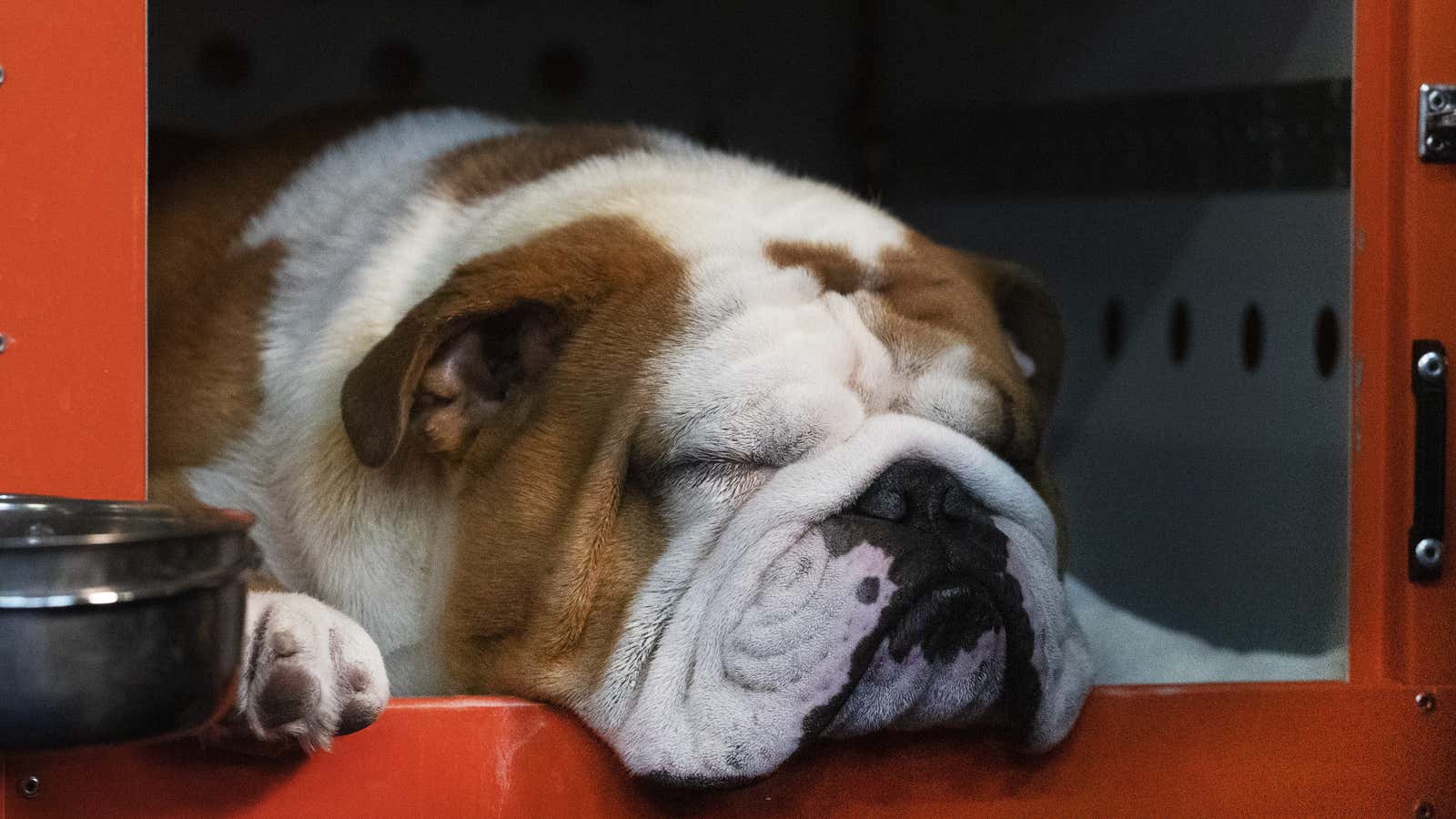A lot of people in the US had the same thought once pandemic lockdowns began in March: Now that I’m home a lot more often, maybe it’s time to pull the trigger and get that rescue kitten or puppy I’ve always wanted.
It’s been a bright spot of news for everyone involved: Shelters are thrilled to find forever homes for their animals, families and individuals get to dote on another creature in the house, and pets, of course, get the support and love of their new owners.
But despite the increased interest in adoption, some data suggest that overall adoption trends have leveled out over the past two months. Why? There simply aren’t enough animals available to adopt.
According to data from 24HourPetWatch, a pet microchip company that collects data from roughly 1,500 US shelters and rescue centers, cat and dog adoptions have actually decreased by about a third compared to the same period last year.
“We did see an initial spike in adoptions in early March,” says Matt Bershadker, the president and chief executive officer at the American Society for the Prevention of Cruelty to Animals, whose adoptions are not reflected in the above data. But they’ve since leveled off. Bershadker says this is partly because the organization has had to close its shelter doors in New York due to safety concerns. They’ve instead moved these animals to foster homes.
They don’t appear to be the only ones. Based on the data from 24PetWatch, fostering for cats has skyrocketed, while dogs in new foster homes have tapered off.
Anecdotally, shelters have had a hard time filling up with new animals they can pair with potential owners. “We simply aren’t able to intake enough animals with the three closed county shelters not taking stray animals and what appears to be a decrease in owner surrenders during this time,” Patricia Kennedy, the executive director of City Dog Rescue in Washington, DC, told DCist.
Bershadker notes that because so many animals are in foster homes now, adoption rates should increase again soon. Instead of reinstating in-person shelter adoptions, though, applications will continue to be conducted virtually until the animals can reach their long-term homes.
